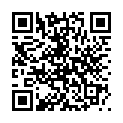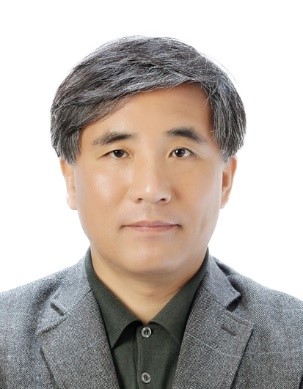1. What are the distinguishing features of your organization?
Sungkyunkwan University’s Academy of East Asian Studies (AEAS) was launched in March of 2000 through the expansion and restructuring of the Daedong Institute for Korean Studies, established in 1958. AEAS is a new type of East Asian research institute designed to respond to the transformations of 21st century civilization and to cultivate talented, future-oriented individuals with convergent multidisciplinary skills. AEAS’s structure aims to merge research, education, and information. Its important goal is to overcome the limitations of area studies and to communicate with mainstream academia across the globe by approaching East Asia with a new perspective and research methodology. To this end, AEAS is establishing internal undergraduate and graduate courses and combining educational and research outcomes. In concert with these efforts, AEAS is also expanding and restructuring the Jongyeonggak, originally Sungkyunkwan’s library, from the Chosun Era, and establishing a structure that combines information with research and education provided to researchers. AEAS is thus seeking innovation in research methodologies and new possibilities in East Asian studies through the organic fusion of research, education, and information. With this foundation, AEAS moves toward a new beginning for Korean studies and the globalization of East Asian studies.
There are several research institutes affiliated with AEAS, including the Institute of Confucian Philosophy & Culture, which focuses its research on the Confucian culture of East Asia; the Daedong Institute for Korean Studies, which pursues globalization of Korean studies; the Sungkyunkwan China Research Institute, which examines China’s current activities based on its traditions; and the Survey Research Center, which analyzes the ROK’s trends through social surveys of modern-day Korea and Koreans.
To further develop education, an interdisciplinary Korean studies program was introduced to the undergraduate studies program for globalization of Korean studies, and an East Asian studies department and interdisciplinary courses on Korean classics translation were introduced to the graduate school, in an effort to envision a new type of graduate school. In addition to the regular curriculum, academic writing courses and the IUC (International Center for Korean Studies), which teaches classical Chinese, have been implemented for Korean studies majors across the globe.
To support information functions, the Jongyeonggak has been established to provide researchers with an access to ancient East Asian literature and documents. Various databases have been developed and are offered to the academic community, and can be easily accessed by researchers. To share AEAS’s research results with the academic community, the 100th issue of Daedong Institute Research will be published this year, in addition to the English academic journal Sungkyun Journal of East Asian Studies (registered with SCOPUS and A&HCI). Furthermore, a strategic academic network is being built with prestigious foreign and domestic research institutes (10 domestic institutes and 57 foreign institutes from 12 countries).
2. What kinds of researches related to the three countries have been conducted in your organization? Please introduce your previous and current research.
Standard cooperative projects in the graduate school cultivate talented individuals who then move on to Chinese and Japanese universities. These projects also proactively engage in exchange and expand collaboration. For example, individuals who have acquired their doctorate through AEAS’s Department of East Asian Studies have gone on to work in Chinese and Japanese universities and research institutes. These individuals assist in fostering exchange and collaboration between the three countries. Approximately 20 AEAS graduates with master’s and doctoral degrees are now active in universities and research institutes, including the Chinese Academy of Social Studies, Nanjing University, Tokyo University, and the Yashima Graduate School. In addition to creating new possibilities for East Asian studies, these individuals’ activities will contribute both to future academic collaboration between the three East Asian countries, and to building a network of talented individuals.
As a long-term target, AEAS communicates a mutual academic agenda and establishes systematic collaborative relationships through continuous exchange with Chinese and Japanese universities and research institutes. In China, these include the Central Party School of the Communist Party’s International Institute for Strategic Studies, Beijing University’s Academy of Governance, Chinese Academy of Social Sciences History Research Institute, Fudan University’s Academy of Literary Studies, and Nanjing University’s Research Center for Studies of Foreign Writings in Chinese. AEAS collaborates with these institutions through regular academic conferences. In Japan, AEAS has held annual academic conferences on East Asian studies since 2003 with Tokyo University’s Institute of Oriental Culture and Kyoto University’s Institute for Research in Humanities. The location of the conferences rotates between Seoul, Tokyo, and Kyoto. Researchers from the three university research institutes contribute greatly to the growth of scholarship and strengthening of academics by holding regular academic conferences based on the agenda created through cooperative discussions.
The Jongyeonggak, a data and information center in the academy, carries on the historical tradition of Sungkyunkwan’s library of the Chosun era. It is also a special library for East Asian studies that directly supports research and educational activities. The Jongyeonggak owns approximately 150 thousand ancient documents, including seven pieces of treasure-grade material. The library is building a digital database of its data collection which is to be used for active exchange with China, Japan, and professional organizations. The Jongyeonggak strengthens cooperation by entering into cross-search service agreements allowing users to access data, and by supporting delivery services for electronic images, hardcopy books, and data. As a result, a total of 1,559 exchanges have been made over the last 10 years. Organizations and institutions with which the Jongyeonggak has made agreements include the Shanghai Library and Tsinghua University, National Library of China, Hong Kong University of Science and Technology Library, and the National Diet Library of Japan.
AEAS also engages in active personnel exchange. Professors affiliated with AEAS are invited to universities and research institutes in the three countries, and attend special lectures and seminars. Similarly, AEAS invites and holds special lectures for professors and scholars from Beijing University, Tsinghua University, Fudan University, the Chinese Academy of Social Sciences, Tokyo University, Kyoto University, and Nagoya University. Exchange between researchers gradually strengthens a community spirit of scholarship that transcends national boundaries. Additionally, AEAS proactively participates in the CAMPUS Asia project, facilitating interactions between students and researchers, with China’s Jilin University and Japan’s Okayama University. AEAS is making efforts to establish a dual system in which dual academic degrees can be acquired with these universities.
3. What is your future prospect for trilateral cooperation and what kind of research should be done to that end? Also, what kind of role the Trilateral Cooperation Secretariat (TCS) can play for this purpose?
The three East Asian countries have a long history of relationship. Exchange and cooperation are still essential is East Asia. Mutual exchanges take place, no matter the three countries wish it or not, and will continue in some shape or form consistently. Thus, mutual cooperation among research institutions in the three countries is all the more necessary. The important questions are what the three countries should exchange, and how they should cooperate. In terms of trilateral cooperation, it is fundamentally inadvisable to bring political issues to the fore in exchange. This type of exchange is very difficult to realistically maintain. It is necessary to move forward one step at a time. Continuous exchange through academic accessibility can establish a strong foundation. To this end, a project design possessing long-term insight and seeking mutually agreed-upon academic agendas is necessary. Academic exchange takes place on a variety of levels, from the university and student levels (through programs such as CAMPUS Asia) to instances in which common interests are discussed in academic forums to allow substantive cooperation between universities and research institutes. Depending on the issue, scholars from individual research institutes may need to conduct regular exchange through academic conferences. Thus, it may be useful for universities and research institutes in the three East Asian countries to discover common topics and hold regular academic forums. This can lead to a spirit of community among institutes via an academic community that transcends simple human academic bonds.
To move toward this kind of academic community, we request a plan from the Trilateral Cooperation Secretariat (TCS) that contains specific efforts and measures to facilitate practical exchange among institutes. To create such a plan, the secretariat could seek the counsel of experts from the three countries, or alternately seek detailed plans from outside. The TCS requires administrative and planning power such that research institutes and scholars from the three countries can pursue cooperation and interaction, and it would be beneficial for the secretariat to act as a bridge in this process.
JIN Jae-kyo Director Jin Jae-kyo graduated from Sungkyunkwan University in 1984 as a researcher of East Asian studies, and acquired his doctorate from the same university’s graduate school in 1992. In 1995 he took a position as professor at Kyungpook National University, and has been working as a professor for Sungkyunkwan University since 1998. He was dean of the college of education and director of the Daedong Institute for Korean Studies, and is currently the director of the Academy of East Asian Studies. He serves as president of the Society for Korean Classical Chinese Education, as well as president of the Woori Society of Korean Literature in Classical Chinese. | |


